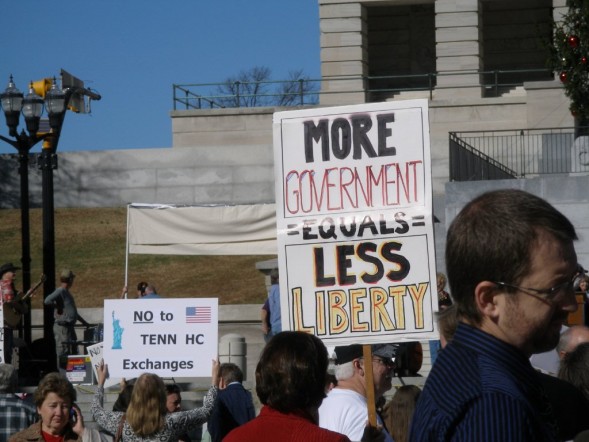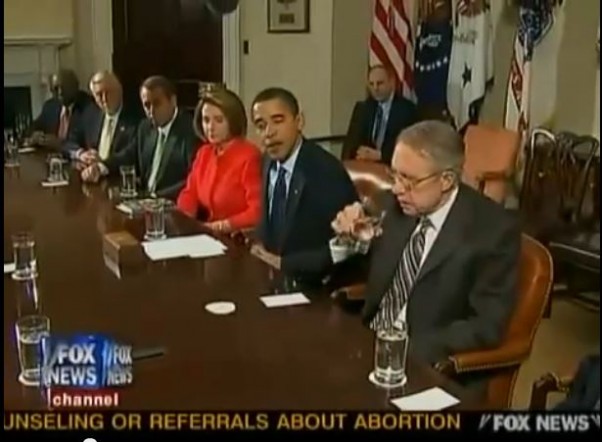THE WAY I SEE IT
by Don Polson Red
Bluff Daily News 11/26/2013
Shirking, cheating to get others’ bounty
Rather than recount the lessons of the first
Thanksgiving—wherein a failing, collectivist system producing starvation and
poverty was replaced with private ownership and production, producing
abundance—let’s apply those lessons to the collective Obamacare system.
Governor Bradford wrote in his diary of the conundrum of single, healthy men
versus men with wives and children under communal production. The family man
alone would neither produce, nor need, any more than the single man, but would
be entitled, for his family, to several times what the single young man
received.
Bradford noted the resentment by young single men over
the unequal distribution of what was produced by the group; women without
children also resented working to help provide for women, with babies and/or
children, who could not therefore work. Thievery became common as people sought
a larger share of the group’s meager resources. Incentive and motivation
lagged, replaced by sloth and indolence, as has happened every time people are
discouraged from providing for their own needs and abundance.
You wonder how this bears on the Obamacare fiasco—the
website problems are only hurdles on the way to implementation of the
monumental disaster to come. It has simply to do with a ratio of three to one
versus five to one: Politicians and technocratic advisors deemed it unfair that
older people with quantifiably higher medical expenses should generally pay
five times what younger, healthier people pay for insurance. They determined it
only fair to limit premiums for older people to three times the younger
person’s premium. The insurance industry engages in risk analysis over such
things, just as they assign the appropriate premiums for life (or death)
insurance for younger, compared to older, people. While not rocket science or
brain surgery, it does follow exacting calculations.
A young healthy man will—due to higher costs under that
formula, and a logical aversion to policy benefits he won’t need (like
maternity care)—be inclined to disregard the “mandate.” By adjusting his
withholding, he’ll not get a refund from the IRS, which will never be able to
collect the fee, or “tax.” He will, rather, choose far better uses for hundreds
of dollars every month, thousands of dollars every year: a car payment, a
better apartment without roommates, saving for a down payment on a house or to
start a business he’s dreamed of creating. Hence, the economic perversity
involved in relying on younger people to pay, relatively speaking, far more
than they would if the insurance market were dominated by free will, business
efficiency and economic self-interest.
When I entered information in the Covered California
“shop and compare” calculator, sure enough, the 27 year-old will pay about
one-third what a 62 year old would pay. No insurance model could possibly be
sold to the general public with such poorly calculated rates. Hence, the focus
on “mandates” and providing “subsidies” to ease the burden of artificially
higher premiums for a “basket” of benefits that many, if not most people, will
find unnecessary.
For instance, a couple in their early 60s with a
$50,000 income will have around a $1500 monthly premium; they qualify for about
an $1100 subsidy from other people’s taxes. Would the people willing to pay
that couple’s subsidy please write a letter to the editor so we can feel
assured that the whole tax-and-spend scheme will work out financially? Who
wants to step forward and offer to pay the $150 subsidy for a young couple
earning $50,000 to defray their $550 monthly premium?
Then, there’s the financial corruption and
“malingering” by the poorer enrollees. How’s that you ask? “James O’Keefe, the
guerrilla videographer who helped bring down ACORN (the “community organizing”
group that Barack Obama worked for as a lawyer and trainer), and got NPR’s
president fired, is back.” (NationalReview.com, “The Truth about Navigators”
11/11) This time, his undercover investigators focused on Obamacare’s
‘Navigators,’ the nearly 50,000 people who … [per HHS] ‘will serve as an
in-person resource for Americans who want additional assistance in shopping for
and enrolling in plans’ on the (eventually working) Obamacare exchanges.”
Some $67 million in grants, some of which is going to
a group run by ACORN’s highly controversial founder, provide the financial
endowment for, among others, a National Urban League Navigator in Texas who, as
a “government-paid worker (is) supposedly trained to uphold the law.” However,
he was recorded advising “clients on how to lie on government forms, evade
legal requirements, and ignore proper procedures.” Similar shenanigans were
found in enrollment operations run by Local 100 United Labor Unions, a “New
Orleans group run by ACORN founder Wade Rathke.” A little larceny to help
poorer folks get other people’s money?
Regarding Covered California: their numbers are simply
bogus and not reflective of actual paid enrollments; the Navigators are awarded
a $58 bounty for each person enrolled; criminal records do not disqualify
someone from becoming a Navigator; the people running it have “no projected
model of success—(they) simply don’t know what demographic mix” or volume is
required to be sustainable.
HHS Secretary Sebelius admitted, “It’s possible” that
“a convicted felon could be a navigator and could acquire sensitive personal
information from an individual unbeknownst to them,” under questioning by Texas
Republican Senator John Cornyn. What could go wrong?










